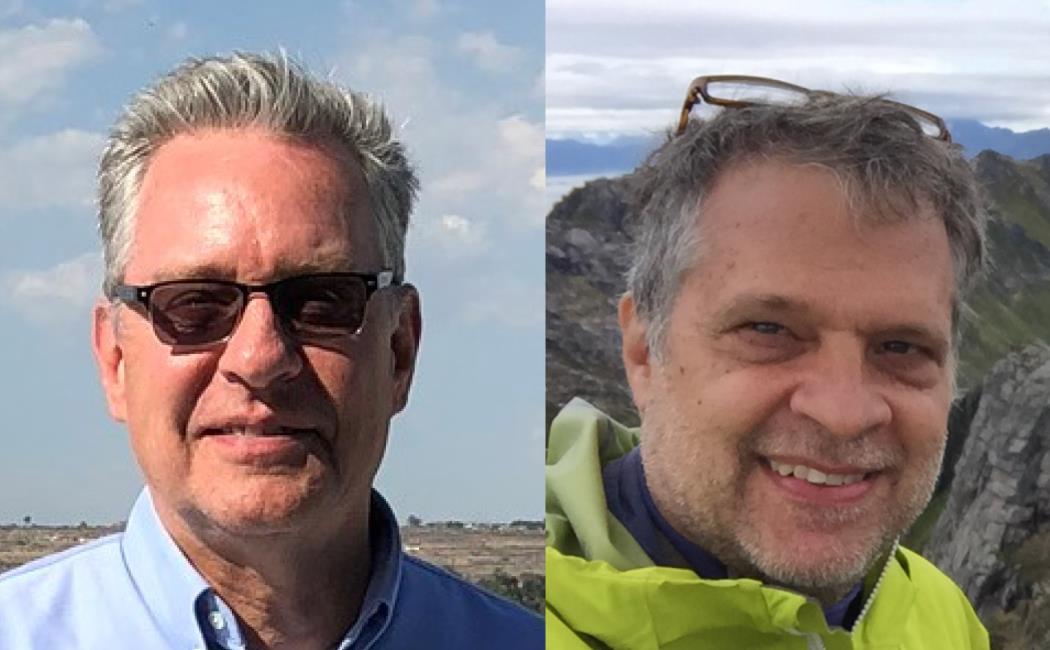Detail

CDA Seminar: Rod Wing & Scott Saleska
Professors Rod Wing (KAUST) and Scott Saleska (UArizona) join us to introduce their labs and describe current research projects.
Rod Wing & Scott Saleska
Tuesday, June 29
9:00-10:30 am MST / 7:00-8:30 pm AST
On Zoom
https://kaust.zoom.us/j/93988721070
How we feed our world without destroying our world by 2050
Speaker: Rod Wing
Director, Center for Desert Agriculture (CDA)
Professor, Plant Science, KAUST
Abstract
I started my academic career in virology and yeast genetics at both UC Berkeley and UC Davis (1977-87) and then saw the light (i.e. green light) and have been working on plants ever since. The late 80s until the end of the century is considered the golden age of genomics and my lab contributed to this field by being the first lab in the world to construct a bacterial artificial chromosome library in plants (i.e. sorghum, 1994) followed by Arabidopsis in 1995. After failing miserably to compete for the A. thaliana genome sequencing project, I vowed never to let that happen again, so prepared myself for next plant genome to be sequenced – Oryza sativa (a.k.a. rice). My lab led the USA effort to sequence the rice genome (IRGSP 2005) and has played major roles in hundreds of other plant and animal genome projects ever since. During the rice genome project, I founded the International Oryza Map Alignment Project (IOMAP) with the goal of creating a genus-level comparative genomics platform to study both basic and applied aspects of rice and its wild relatives and its application to sustainable food security. Today, my lab is pursing 4 research topics:
- Generation and deployment of Platinum Standard Reference Sequences for one representative of each of the 27 species of the genus Oryza and the k=15 population structure of cultivated Asian rice
- Generation of a digital gene bank for 130,000 accessions stored in IRRI’s TT Chang Genetic Resource Center in the Philippines
- Neo-domestication of the wild relatives of rice
- The Kingdom of Saudi Arabia Native Genome Project: aiming to sequence all terrestrial and aquatic native ecosystems in the KSA by 2030
In my talk, I will touch briefly on each of these research areas as well as provide an overview of the CDA’s 10-year strategic vision.
About the Speaker
Rod Wing earned his Ph.D. in Genetics from UC Davis, and completed post-doctoral research at Cornell’s NSF Plant Science Center and USDA/UC Berkeley’s Plant Gene Expression Center. His 30-year career in plant science has spanned the US, beginning as an Assistant Professor of Soil & Crop Sciences at Texas A&M, Coker Chair of Genetics & Biochemistry at Clemson University, Regents Professor at the University of Arizona’s School of Plant Sciences, and now Director of the Center for Desert Agriculture at KAUST. His work on the genome biology of rice and other crops has empowered the agricultural community across the globe to address both fundamental and applied questions in pursuit of the 10-billion people question – i.e. How can we grow enough nutritious food to feed the world by 2050 without destroying out planet?
Standing on the shoulders of Joseph von Fraunhoffer and Carl Woese: Acquiring data to scale from molecules to ecosystems
Speaker: Scott Saleska
Associate Professor, Dept. of Ecology & Evolutionary Biology, University of Arizona
Abstract
An exciting and fundamental grand challenge of biology and earth system science is embodied in the question: how do we scale from molecules to ecosystems? In this talk, I will present three technological challenges for meeting this grand challenge:
I do not have research experience in agroecosystems (yet), but will discuss these general challenges in the context of two other example systems: thawing permafrost in an arctic peatland, and University of Arizona’s large-scale experimental ecosystems in the Biosphere. Along the way, we will acknowledge the “shoulders of giants” (in Isaac Newton’s apt phrase) on which we stand as we try to meet these challenges.
About the Speaker
Dr. Saleska is professor of Ecology and Evolutionary Biology at University of Arizona, where he researches biology as part of the global climate system. He studies how individual or community-level ecological and evolutionary mechanisms propagate to ecosystems and regions and affect large-scale climate. He develops cutting-edge technologies and sensors for the study of organisms within ecosystems. He is a fellow of the Ecological Society of America, director of Science for Biosphere 2’s Landscape Evolution Observatory, and co-director of University of Arizona’s graduate training program in ecosystem genomics, “Building Resources for Inter-Disciplinary training in Genomic and Ecosystem Sciences (BRIDGES)” an NSF-funded Research Traineeship.
Part of the KAUST-UArizona Summer Seminar Series – Towards a Joint Center for Sustainable Agriculture in Desert Environments. Click here to view the full schedule.
Please contact cda.communications@kaust.edu.sa to request access.
This event occurred in the past. You can watch the recording on our YouTube channel.
Speakers
Rod Wing
Director, Center for Desert Agriculture (CDA); Professor, Plant Science, KAUST
Scott Saleska
Associate Professor, Dept. of Ecology & Evolutionary Biology, University of Arizona